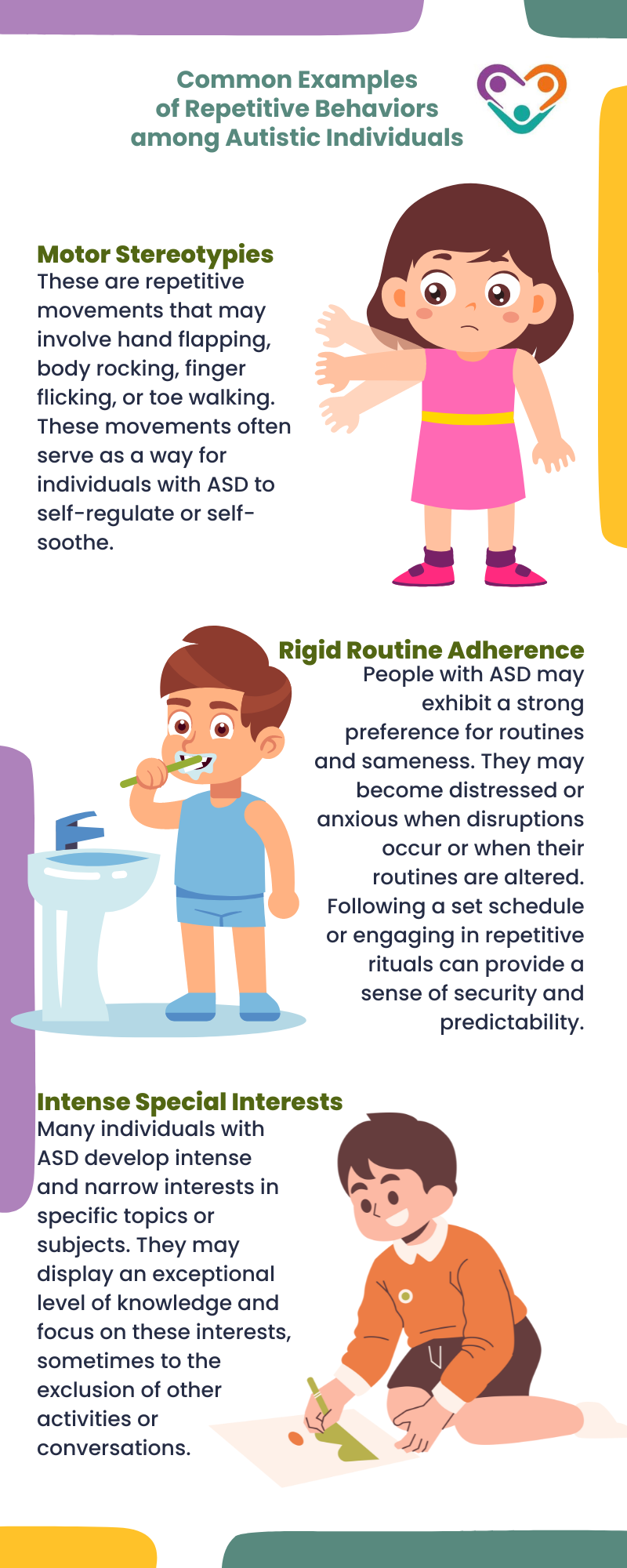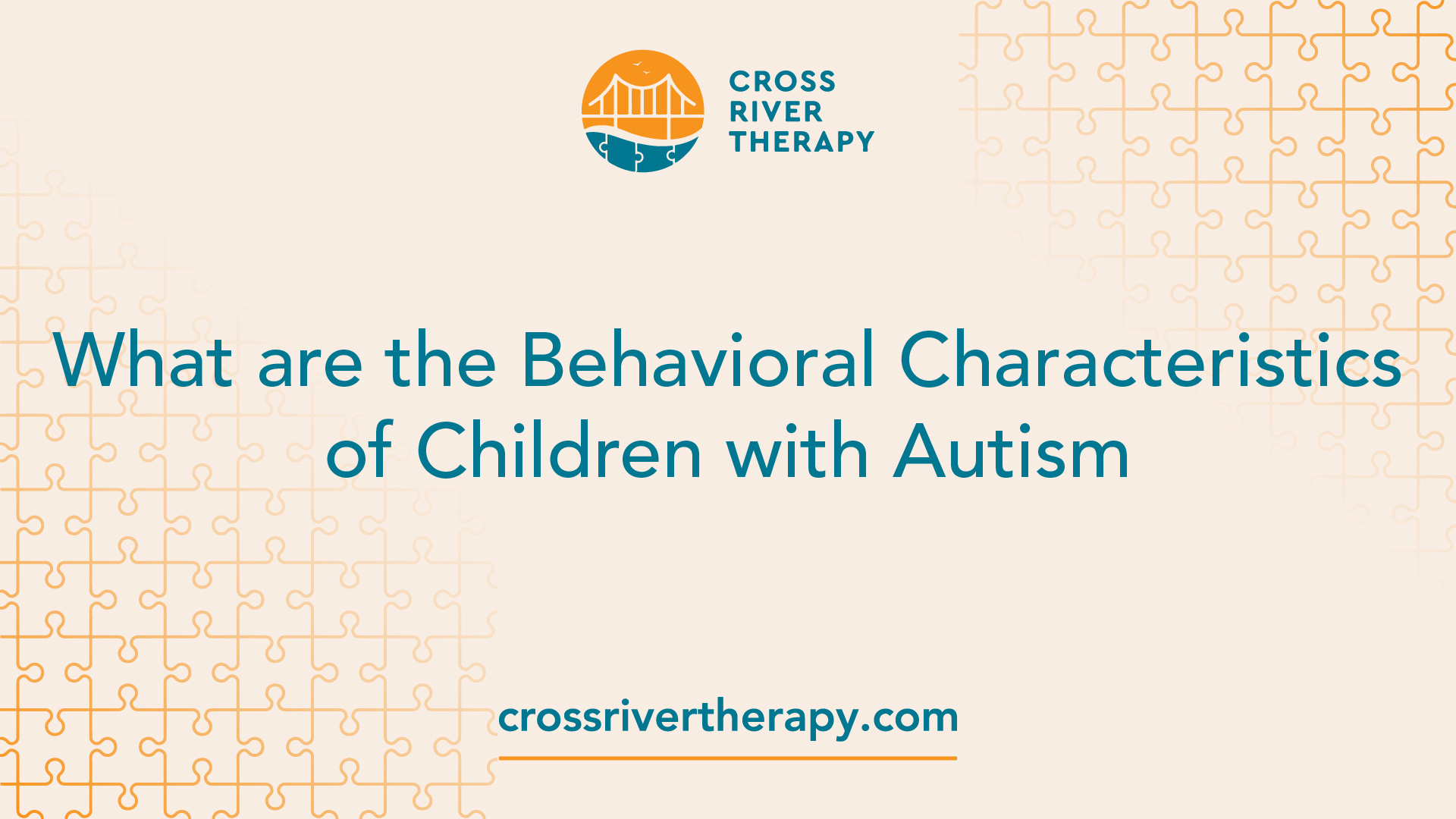How to design sensory-friendly spaces with advice from an Autism Therapist's perspective
How to design sensory-friendly spaces with advice from an Autism Therapist's perspective
Blog Article
Key Symptoms And Signs to Recognize in Individuals With Behavioral Autism
When you come across someone with behavior autism, acknowledging vital symptoms and signs is necessary. You might discover obstacles in social communications and communication, as well as a strong requirement for routines. Furthermore, sensory sensitivities can cause frustrating experiences. Understanding these traits can boost your assistance and treatments, however there's even more to reveal concerning how these habits show up in everyday scenarios. Allow's discover what these indicators actually look like.
Challenges in Social Communications
When you connect with someone on the autism range, you may discover they have a hard time with social cues and interaction. These challenges can make social communications feel frustrating for them. You may see them staying clear of eye get in touch with or standing also close or too away throughout discussions, which can create misunderstandings. They might not select up on body movement or face expressions, making it harder for them to determine exactly how others are feeling.
When they do involve, they may chat concerning their interests in terrific information without observing if you're interested. Recognizing these obstacles can help you approach interactions with compassion and persistence, promoting an extra comfy setting for both of you.
Problem With Verbal and Non-Verbal Interaction

Non-verbal interaction can be a lot more tough. You may see an absence of eye get in touch with or minimal use gestures, which can make interactions really feel uncomfortable. Face expressions might not always straighten with the conversation, bring about confusion concerning their feelings. Identifying these signs is crucial, as it assists you far better support and involve with people on the autism spectrum. By understanding their interaction obstacles, you can foster extra meaningful links and provide a much more encouraging environment.
Recurring Behaviors and Routines
Communication obstacles often go along with various other indicators of autism, such as repetitive habits and a strong choice for regimens. You could notice that individuals with autism commonly take part in specific, repeated actions, like hand-flapping, rocking, or repeating phrases. These habits can supply convenience and a feeling of control in an usually overwhelming world.
When they adhere to a structured routine,Routines are similarly essential; lots of people flourish. You may discover that changes to these routines can lead to significant distress. As an example, if they have a day-to-day routine of consuming morning meal at a certain time or complying with a specific route to school, any kind of disturbance can trigger anxiousness.
Acknowledging these patterns helps you recognize their actions and offer support. By suiting their requirement for routine and allowing recurring actions, you can create an extra comfortable environment that alleviates their difficulties.
Sensory Level Of Sensitivities

Typical Sensory Triggers
Sensory level of sensitivities can significantly impact every day life for people with autism, as certain stimulations frequently activate overwhelming reactions. Usual sensory triggers consist of loud noises, brilliant lights, and solid smells. You may see that sudden noises, like alarms or sirens, trigger anxiousness or distress. Fluorescent lighting in shops can feel awkward and harsh. Textures can likewise play a considerable duty; harsh textiles or certain food textures may be intolerable for you. Furthermore, crowded locations can overwhelm your senses, making it difficult to kick back or concentrate. Recognizing these triggers can aid you handle your setting much better. By recognizing what influences you, you can take actions to decrease pain and enhance your everyday experiences.
Behavior Actions Described
Recognizing your behavioral reactions to sensory sensitivities is essential, as they often disclose just how you engage with the world. You could observe that specific sounds, lights, or appearances bewilder you, resulting in anxiety or pain. When faced with these stimulations, you may withdraw, cover your ears, or also react aggressively. These feedbacks aren't just traits; they're your method of dealing with overstimulation. You might likewise locate yourself looking for certain sensory experiences, like deep pressure or silent environments, to aid ground yourself. Identifying these patterns assists you understand your demands better and can lead exactly how you connect them to others. By recognizing your sensory sensitivities, you can function in the direction of producing an atmosphere that feels a lot more comfortable and workable for you.
Coping Techniques Introduction
Recognizing your sensory sensitivities is just the primary step; now it's time to explore coping methods that can aid you take care of those experiences effectively. Begin by producing a sensory toolkit customized to your demands. This could include noise-canceling headphones, fidget playthings, or relaxing aromas. Establishing a structured routine can likewise supply predictability, lowering anxiousness around sensory overload. When you feel overwhelmed, take breaks in a peaceful area to collect yourself. Practicing mindfulness techniques like deep breathing can assist ground you in the moment. Furthermore, interact your demands with those around you; having encouraging family and friends can make a huge difference. Remember, locating what functions ideal for you might take some time, so be open and patient to attempting new methods.
Limited Rate Of Interests and Focus
While many people establish a vast array of passions, those with autism often show limited rate of interests and an intense emphasis on particular subjects. You may discover that a person with autism can spend hours delving right into their favorite topic, whether it's a specific kind of train, a certain film, or a clinical idea. This extreme focus isn't simply a pastime; it can become a central component of their identity and social communications.
You might find that discussions focus on these interests, and they might have a hard time to take part in wider subjects. For them, these focused passions offer convenience and a sense of mastery. While it is very important to motivate expedition of new topics, respecting their enthusiasms is just as vital. By comprehending and acknowledging these limited passions, you can foster a helpful environment where they feel valued and comprehended, enabling more purposeful links and interactions.
Emotional Policy Problems
Individuals with autism often face difficulties in emotional policy, which can be influenced by their extreme emphasis on specific interests. You might notice that when a person is deeply taken part in a recommended task, they can experience solid feelings, whether enjoyment or frustration. This intensity sometimes makes it tough for them to move Visit Website equipments or handle their feelings when things do not go as prepared.

Variability in Developing Milestones
When it comes to developing landmarks, you'll observe that individuals with autism often show a large range of irregularity. Some may hit landmarks on time, while others might hang back or progress at a different rate. You may see a kid excel in language skills yet struggle with social interactions. This disparity can be complex, as standard standards do not always apply.
It's essential to recognize that each person's trip is special. Observing these patterns can help you recognize their staminas and needs better.
Regularly Asked Concerns
How Is Autism Detected in Children and Grownups?
To detect autism in children and adults, specialists evaluate actions, interaction skills, and social interactions. They typically utilize standardized tests, interviews, and observations to establish if an individual meets the standards for autism spectrum problem.
Are There Different Kinds of Autism Spectrum Disorders?
Yes, there are different find this kinds of autism spectrum conditions, including Asperger's syndrome and prevalent developmental disorder-not otherwise defined. Each kind varies in extent and qualities, so recognizing these distinctions can assist you better support people with autism.
What Treatments Work for People With Autism?
When taking into consideration effective treatments for people with autism, you'll find choices like Applied Actions Evaluation, speech therapy, and work-related treatment. Each approach can help enhance interaction, social abilities, and daily functioning tailored to private demands.
Can People With Autism Lead Independent Lives?
Yes, people with autism can lead independent lives. With the appropriate assistance, skills training, and resources, you can aid them establish self-sufficiency, handle daily tasks, and thrive in various settings, fostering their independence.
How Can Family Members Assistance Liked Ones With Autism?
You can sustain your enjoyed ones with autism by creating a structured environment, encouraging their rate of interests, practicing persistence, promoting communication, and promoting social skills. Celebrate their achievements, despite how small, and build a supportive community.
Although many individuals on the autism range can recognize and make use of language, they often encounter substantial obstacles with both spoken and non-verbal communication. Recognizing these signs is essential, as it aids you far better assistance and engage with individuals on the autism range. You may observe that individuals with autism often involve in details, repetitive actions, like hand-flapping, rocking, or duplicating expressions.Sensory sensitivities can considerably impact day-to-day life for people with autism, as specific stimuli often trigger frustrating reactions.When it comes to developing landmarks, you'll observe that individuals with autism frequently show a broad try this site range of irregularity.
Report this page